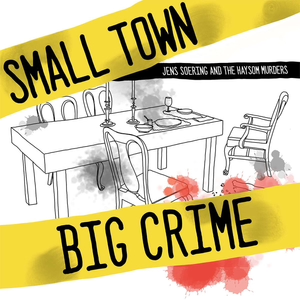
What Is Hamas’s Strategy?
10/18/23 • 32 min
2 Listeners
Earlier this week, The New Yorker published an interview with a senior Hamas political official, Mousa Abu Marzouk, about the group’s rationale behind the October 7th massacre in Israel. How did Hamas militants determine that now was the time for violence? And, given that Netanyahu’s deadly response was a sure thing, how did they weigh the cost of Palestinian lives? (This podcast episode was recorded on Monday afternoon, and since then civilian deaths in Gaza have continued to rise as Israeli airstrikes bombard the strip.) The New Yorker reporters David Kirkpatrick and Adam Rasgon join Tyler Foggatt to discuss what they learned from speaking with Abu Marzouk, and how this conflict differs from what they have each seen in their many years of reporting on the region.
Earlier this week, The New Yorker published an interview with a senior Hamas political official, Mousa Abu Marzouk, about the group’s rationale behind the October 7th massacre in Israel. How did Hamas militants determine that now was the time for violence? And, given that Netanyahu’s deadly response was a sure thing, how did they weigh the cost of Palestinian lives? (This podcast episode was recorded on Monday afternoon, and since then civilian deaths in Gaza have continued to rise as Israeli airstrikes bombard the strip.) The New Yorker reporters David Kirkpatrick and Adam Rasgon join Tyler Foggatt to discuss what they learned from speaking with Abu Marzouk, and how this conflict differs from what they have each seen in their many years of reporting on the region.
Previous Episode

Rodrigo Duterte’s Deadly Promise
When Rodrigo Duterte ran for the presidency of the Philippines and won, in 2016, the Western press noted the similarities between this unconventional candidate and Donald Trump—who also liked to casually espouse violence on the campaign trail and beyond. Duterte used provocative and obscene language to tap into the country’s fears about a real, albeit overstated, drug problem. “Every drug addict was a schizophrenic, hallucinatory, will rape your mother and butcher your father,” as reporter Patricia Evangelista puts it, “and if he can’t find a child to rape, he’ll rape a goat.” But, unlike Donald Trump, Duterte made good on his promise of death. More than twenty thousand extrajudicial killings took place over the course of his six-year term in office, according to human-rights groups—and Duterte remained quite popular as bodies piled up in the streets. Reporting for the news site Rappler, Evangelista confronted the collateral damage when Durterte started to enact his “kill them all” policies. “I had to take accountability,” she tells David Remnick. Her book, “Some People Need Killing,” is published in the U.S. this week, and Evangelista has left the Philippines because of the danger it puts her in. “I own the guilt,” Evangelista says. “How can I sit in New York, when the people whose stories I told, who took the risk to tell me their stories, are sitting in shanties across the country and might be at risk because of things they told me.”
Next Episode

What Is Hamas’s Strategy?
Earlier this week,The New Yorkerpublished aninterviewwith a senior Hamas political official, Mousa Abu Marzouk, about the group’s rationale behind the October 7th massacre in Israel. How did Hamas militants determine that now was the time for violence? And, given that Netanyahu’s deadly response was a sure thing, how did they weigh the cost of Palestinian lives? (This podcast episode was recorded on Monday afternoon, and since then civilian deaths in Gaza have continued to rise as Israeli airstrikes bombard the strip.) TheNew Yorkerreporters David Kirkpatrick and Adam Rasgon join Tyler Foggatt to discuss what they learned from speaking with Abu Marzouk, and how this conflict differs from what they have each seen in their many years of reporting on the region.
If you like this episode you’ll love
Episode Comments
Generate a badge
Get a badge for your website that links back to this episode
<a href="https://goodpods.com/podcasts/the-political-scene-the-new-yorker-11611/what-is-hamass-strategy-35094596"> <img src="https://storage.googleapis.com/goodpods-images-bucket/badges/generic-badge-1.svg" alt="listen to what is hamas’s strategy? on goodpods" style="width: 225px" /> </a>
Copy




